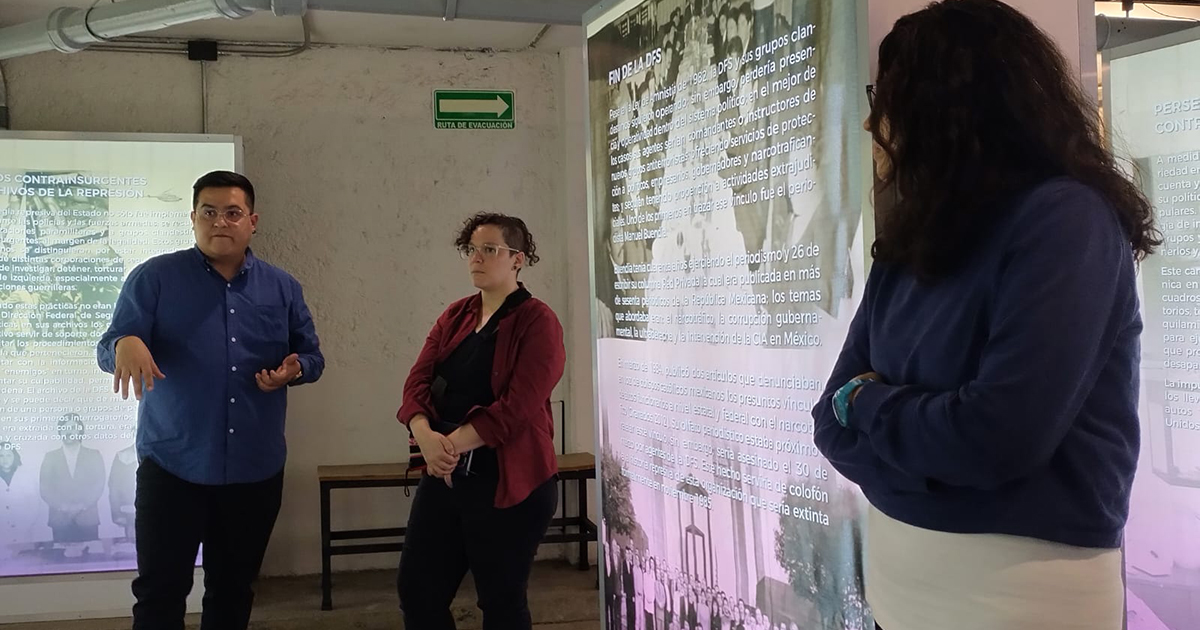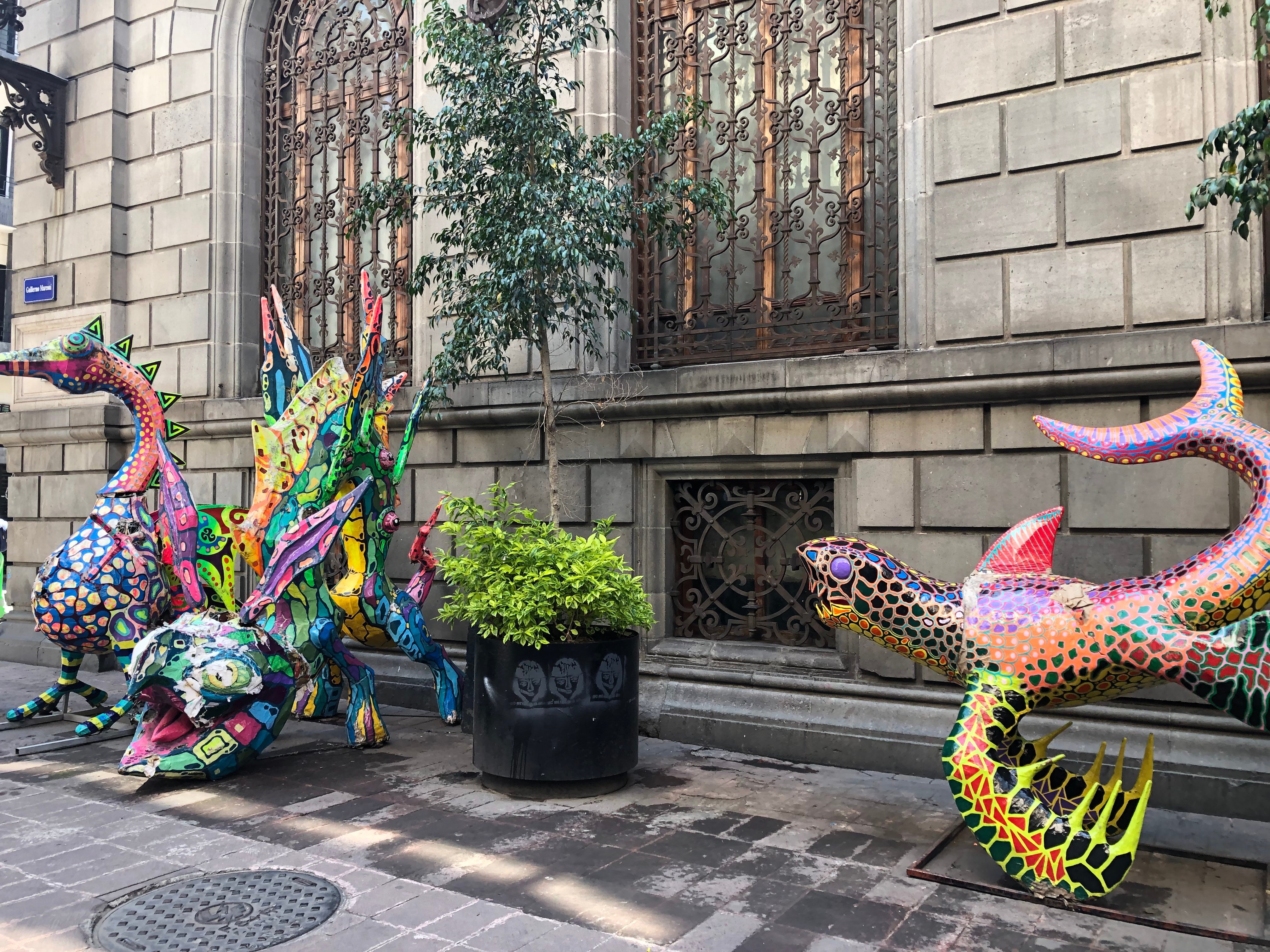
Since 2021, the International Coalition of Sites of Conscience (ICSC) has offered internships to Newcastle University students as part of its efforts to bridge the gap between past and present human rights challenges.
The organisation helps preserve the memories of historic sites and memorials around the world to educate future generations on the reality of past atrocities.
We caught up with PhD student Vic to ask what it was like to be selected to work at Mexico’s Site of Memory “Circular de Morelia” and get his advice about applying for an ICSC internship.
Contents:
-
What drew you to the ICSC internship?
-
What was the application process like?
-
What happened after you were selected?
-
What have you learned from the application process?
What drew you to the ICSC internship?
I got the information about the internships from my supervisor just before arriving in Newcastle to start my PhD. As someone whose research focuses on memory and identity, I was immediately drawn to it – having the opportunity to attend one of the sites that were listed, with their incredibly diverse projects, sounded like a fantastic opportunity to diversify my knowledge and learn about new contexts and practices.
Although the connection between the ICSC and my research was evident, the diversity of topics and organisations that are part of it makes it a great platform to connect with people interested in the ways our past shapes our present and future.
The limited time of the internship also allows people to explore, learn, and educate others in diverse schools and programmes without the pressure of being an expert in memory, heritage, or history.
What was the application process like?
The application deadline was the same day I arrived in Newcastle, so it was quite a hectic experience. The first step requires you to indicate your interest and how you think you can benefit the site, which was really helpful. Having to stop and think about what I wanted to take from this internship, as well as reflecting on my own skills, was really important.
We were allowed to apply to three internships at the same time, which allowed me to dream big and connect my interests with different projects. Knowing your strengths when applying is key. I prioritised those in Spanish-speaking countries, as I am a native speaker, and I only applied to one in English.
Next, I interviewed with the team of Global Opportunities and the ICSC, and later with the people at the site I had been selected for. This second interview – in my case with Circular de Morelia, a state-administered memory site focused on the human rights violations during the period known as Mexico's “Dirty War” – was more to co-ordinate what I would do during the internship. It was really important to be really attentive and take notes of everything, as the information discussed during this meeting was important for future communications, as well as for the paperwork with the University.
As an international student, experiencing the application process and talking with Linda Norris, a Senior Specialist in Methodology and Practice at the ICSC interview, was a great learning opportunity.
I felt my own knowledge, born from the places I have lived, and my participation in different countries’ academic spheres, was acknowledged and brought into the conversation. In each phase, some really important questions were made to promote reflection and dialogue; questions connected with what I could offer, but also to the challenges I saw and the fears I had.

What happened after you were selected?
Upon being selected, there were two mandatory training sessions: a course on Canvas [the University's online learning platform] to complete before departing, and one on using Terra Dotta to confirm the placement. I had not really used either before being selected, which made it particularly challenging for me. However, the instructions were easy to follow and I was helped in the process by the University's Global Opportunities team.
As such, it is important to follow the steps with enough time and keep communication with the organisation of the internship during the process, as you will need information from them. Terra Dotta is a platform that organises the application for you in simple steps, including risk assessment, contact information, etc. It takes time to complete all the information – I definitely did not consider how much time I needed in each step.
What have you learned from the application process?
Applying to the internship made me more aware of the different institutions and systems in the University, which is challenging enough upon arriving mid-academic year. I also learned a lot about the UK systems, including health and social security, as I had to navigate these to make sure I had the appropriate coverage upon application.
In this process, the guidance and help from the Global Opportunities team and in my School, including my supervisor, other PhD students, and administrative personnel, were key.
Although I felt, at times, I was bothering everyone with the number of questions I had, this was really important so I could travel with the certainty of having all potential issues covered. The responses were explicitly tailored to my case, as most general information is made for UK students.
I prepared for the interviews by checking the information of the ICSC and Circular de Morelia on their websites and later made sure to familiarise myself and connect with the reality I was travelling to through movies and literature.
It is important to not get overwhelmed in this process – you will have time once your placement starts to learn in situ, so be patient with yourself as you navigate the normal challenges of a semester at the same time as this.
I realised on multiple occasions how much I had already learned through the application process, just by being excited about this opportunity and taking each step as a possibility to understand myself better.
Find out more:
- Discover more about how we work with the ICSC
- Visit the International Coalition of Sites of Conscience website
- Read a selection of testimonials from past ICSC interns

We've been voted top in the UK for student life in the WhatUni Student Choice Awards 2025 - trusted recognition from real students.